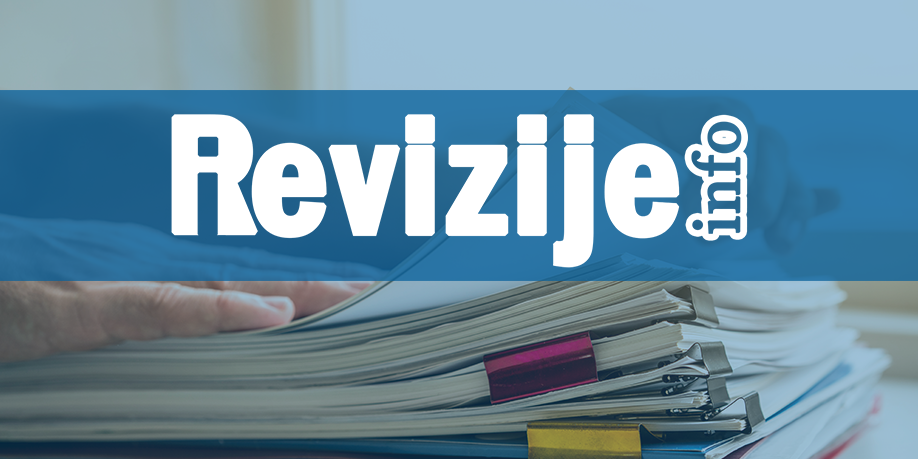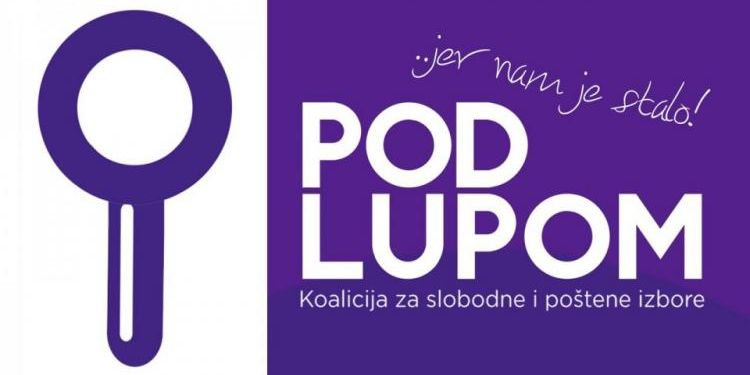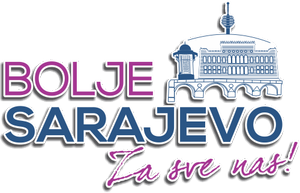CCI has started implementation of new five year project Civil Society Sustainability Project (CSSP) with financial support of USAID. During the five-year performance period (2013-2018), the CSSP will provide a new energy and vision for achieving a full influence of civil society on improving living conditions of BiH citizens and sustainable development of civil society in the country.. More…
The CSSP will establish direct communication between citizens and CSOs, a true partnership, which will motivate citizens to join CSOs' efforts and engage in decision making processes. Citizens will become more active in using opportunities at hand to become part of creating their living conditions together with CSOs, particularly through involvement in the budgeting process. It will increase citizens' understanding and a level of their interest in becoming part of the public funds allocation process, especially in the areas addressing the citizens' most pressing problems. This in turn will increase accountability of elected representatives.
Media plays a crucial role in shaping democracy and the CSSP will contribute to more openness and better cooperation between the media and CSOs.
Cooperation with governments in BiH is discontinuous and the relationship between government and CSOs is largely blurred by governments' failing to understand the benefits of constructive criticism. Many opportunities that a healthy partnership may provide are left unused. In particular, it refers to the area of EU reforms, with an accent on consultations regarding the contents of the required reforms and finding solutions to citizens’ many problems through IPA funds and other EU financial mechanisms. Therefore, the CSSP will create a joint agenda between government (especially local government) and CSOs in the field of meeting citizens' demands and the contents of EU reforms.
The focus will be on creating more effective CSOs' influence on public policies of the local, entity and state government through monitoring government performance, policy research and informing and including the citizens. After that, CSOs will be able to demonstrate their advocacy power in pressing for citizens' concerns.
CSOs' capacities significantly improved through the previous efforts and projects; however CSOs are still facing serious difficulties primarily due to the lack of an affirmative work environment for CSOs and required accountability. The CSSP will additionally improve the legal environment, improve CSOs' capacities, with a special emphasis on their accountability, which will strengthen CSOs' legitimacy and improve the environment for achieving overall sustainability of the civil society sector in BiH.
As part of the project „Budget“ CCI actively joined the preparation and advocacy for passing of the new BH Federation Law on Budgets Thanks to a strong media pressure, the Proposed Law was promptly incorporated in the agenda of FBiH Parliament, so that at the end of October, the House of Representatives approved the proposed Law, and the same decision is expected to be taken in the next session of the House of Peoples. This will enable BH Federation to have a completely new and by far better legal framework regulating budget policies and procedures. These activities are financially supported by the Embassy of the Kingdom of Holland in BiH. More....
Project „Budget“ aims at contributing to a better understanding of the budget policy in BiH and to making the budgetary process more simple and more comprehensible/accessible to the public and citizens.
Another intention of the project is to propose and advocate relevant and effective measures for improvement of public budgeting policies, to increase transparency of the budgeting process and increase of participation in the process of budget drafting at all levels of Bosnia and Herzegovina authorities. At the early stage of the project, a comprehensive financial and legislative analysis of the budget of all 4 levels of authorities was undertaken (BiH, RS, FBiH, Sarajevo Canton), as well as of three local budgets (Tuzla, Banja Luka and Mostar). The analyses covered 80% of total budgetary and extra-budgetary funds (public spending) in BiH, i.e. 8.7 of total 10.9 billion KM.
All analyses undertaken during the project, all other relevant analyses, budgets and other thematic documents, along with a number of interactive tools are available on the website www.budzetnarodu.ba which represents a basis of the advocacy campaign that has the same name.
In mid-2013 CCI actively joined the preparation and advocacy for passing of the new Law on Budgets in FBiH. The new law on budgets should provide for permanent instruments of fiscal responsibility, financial discipline, transparency and participation of the budgeting process. Apart from the public debate on the draft law that was organized by CCI in July, in a number of meetings and contacts with political parties and Parliament members, a support for passing of the Draft Law was ensured in both houses of the Federal Parliament.
During the public debate CCI organized 4 street events in Banja Luka, Tuzla, Mostar and Sarajevo, in order to emphasize the importance of passing this Law, and by distribution of promotional material, provided relevant and fresh information to citizens regarding BiH budgetary policies.


Street actions – Budget to the People

CCI started the initiative for passing of the new Law on Games of Chance. By passing of the law much more money should be provided for meeting the needs of the neediest parts of the society. An advocacy campaign is run by CCI in order to accelerate the passing of this law. These are the activities within the project „Games of Chance“ which is supported by Balkan Trust for Democracy. More...
The Centres for Civic Initiatives (CCI) have been working for a number of years already on improvement of the legal framework governing organization of the games of chance in BiH. Our efforts resulted in the fact that for several years already, in both BH entities, a number of humanitarian, social, health and other needs of the population have been financed from the funds collected on the basis of imposing taxes on games of chance.
The Project „Games of Chance“ was launched by CCI at the end of 2012 as part of which an initiative was started for passing of the new Law on Games of Chance in BH Federation. The Law should ensure much more money for meeting the needs of the neediest population categories. Because of the fact that 50% of income collected from games of chance is used as humanitarian, social and development support, the campaign was marked by a slogan „Half of the Chance to Others“. Thanks to the new Law on Games of Chance, one half of the funds collected by transactions made by BH Lottery, and of the funds of all other fees for issuing approvals charged to other games of chance organizers, will be paid into a separate account and be intended for:
1) medical treatment of the children and the young suffering from serious diseases, which can be undertaken in foreign countries only;
2) protection of the children who are the victims of abuse, pedophilia and beggary;
3) meeting the needs of disabled persons;
4) fighting drugs and addictions;
5) protection of victims of torture and violence (domestic violence shelters);
6) promotion of development of professional and amateur sport;
7) promotion of technical culture and associations dealing with innovations;
8) work of soup kitchens.
Since mid-2013 CCI started an intensive advocacy campaign in order to accelerate the law-making procedure, which resulted in passing of the new Law on Games of Chance, first by its approval in FBiH Government, and then in both houses of the Federal Parliament, which was ended in September. The public debate will last until the end of November after which the Proposed Law is expected to be finalized and finally approved by the FBiH Government and Parliament. During the intensive campaign CCI organized a number of public events, round tables and street actions in order to inform the public on the contents and importance of the Law and thus make an indirect pressure on decision-makers and ensure parliamentary support to passing of the Law.


Round tables and street actions as a promotion of the new FBiH Law on Games of Chance
CCI launched a campaign for building of a new water fountain in Bijeljina. The initiative for this campaign came from the citizens who pointed out at this problem several times during the Responsibility Forums undertaken by the CCI within the project „Local Governance for the Quality of Citizens' Life“, financed by the European Union. More...
The City of Bijeljina is the only local community in the region with more than 100.000 inhabitants that does not have a single public drinking water fountain, and one of the rare communities without a public toilet. This evident problem may be viewed from different angles – health-related, hygienic, esthetic, monumental, tourist and finally vital. Constructing improvised public drinking water fountains in the last two summers only additionally confirmed the existence of the problem and represented only a temporary solution. Although they fulfilled their primary goal, such public fountains disrupt the appearance of the centre of the city and are not adequate for a local community that aspires to become a regional, University and any other center. Furthermore, public fountains are something that adorns any major city, and with time they acquire special historical and monumental value and become a recognizable landmark of a town or a city. At the same time, a city that offers to its tourists, visitors as well as to its own citizens toilettes only in restaurants and coffee bars, or even worse, in abandoned buildings in the centre of the town, instead of a public toilet, has nothing to do on a tourist or any other map.
The campaign was announced in November in the local media, but without much response from the public. However, in November 2013, after placing a series of 7 billboards that present public water fountains in other cities of the region and improvised public water fountains in Bijeljina the campaign was largely approved by the public – this was manifested by telephone calls, emails, comments on the leading local website and a number of media articles presented on this subject.
The public initiative and an explanation for planning the budget resources in 2014 for building of the public fountain and a public toilet were submitted to the mayor and the head of the responsible department. Support was given by a significant number of citizens too, who sent emails to the mayor in which they supported the goals of the campaign. The project team will also take advantage of the period of the public debate on draft budget for 2014 to demand from the local authorities to seriously deal with this problem. By then the public pressure and citizens' support should have even more increased thanks to the intensive implementation of the campaign activities.

The Integrity Plans for De-Corruption of Public Health in BH approved. As part of the project De-Corruption of Public Health, financed by the European Union, the representatives of the Health Ministry and the civil society agreed on this important document that should contribute to the prevention i.e. fighting corruption in public health sector. More...
The draft that was created and approved was submitted to individual institutions for further adjustments, approval and application. The whole process will be monitored by CCI staff, who will also launch a public campaign for approval of these key enactments for prevention and corruption fight, and for informing the citizens and the broader public about the possibilities offered by prevention in fighting corruption in public health.
The nature of this type of anti-corruption measures is such that it represents the best type of systemic fighting against corruption in public institutions, as it places an emphasis on prevention, i.e. decreases the possibility of occurrence of corruptive actions. It has been shown in practice that actions taken before the occurrence of corruption itself are far more effective compared to the measures imposed on the perpetrators of corruptive actions. The integrity plan is a structurally designed document that contains the system of identified critical points prone to corruption in performing an activity of a public institution, the list of measures for overcoming these anomalies, responsible subjects and individuals in charge of the implementation of such measures as well as implementation deadlines. The preparation stage, i.e. the stage of a thorough investigation within an institution by a responsible internal Working Group, is a conditio sine qua non for successful designing of the Integrity Plan. That is to say, the Integrity Plan should represent a result of a number of properly implemented investigation activities within an institution itself.
The draft, as a basis for developing individual Integrity Plans in public health institutions was unanimously accepted by the Working Group members, and so was the CCI's proposal that public health institutions should approve their own Plans by the end of 2013. At the moment, meetings with managing staff of target institutions are organized by the project team, in order to form the teams that will adjust the drafts to the specific institution and prepare them for approval by the end of 2014. Monitoring and adoption of these and other anti-corruption measures will be carried out and the public informed periodically about it.
The public campaign that has just started aims at emphasizing the importance of integrity of each institution, with a picturesque analogy with the medicaments that have a preventive role in people's health. On the posters that will be placed on public transportation means in bigger BH cities and by other communication tools too, the public will be introduced with an idea of introducing integrity plans, and additional pressure will be made on responsible persons to approve them and start their application.


Centers for Civic Initiatives (CCI), within project "Local administration for the quality of life of citizens" financed by EU, organized street stands in the 14 municipalities and cities in B&H, from 22nd to 29th of September. The motive for organizing the stands was the Citizen Participation Week, Source Code which is global European action in this period. On this occasion, citizens and the public were more informed with the results of the study on the quality of life in the municipalities of B&H through distribution of printed material. Also, the open book of priorities was offered to citizens so they could write down their priorities, and the local government was supposed to deal with these priorities in the future, in order to increase the quality of life at the local level. More…
During the "Citizen Participation Week" about 500 priority proposals were collected in these 14 local communities. CCI, within mentioned Project supported by EU, through various activities advocates civic activism, citizen participation in public life through their involvement in the decision – making process, creation of specific programs and policies, with the aim of inclusion of broader social interests in the documents adopted by the local authorities, which affect the quality of life of citizens. Until now, the problem was not just how to bring the local authorities to be more involved in the process of collecting opinions and needs of the citizens, but also the motivation of the citizens themselves. Although significant number of priorities was collected on the streets, and although citizens were better responsive than in previous years, still there is a distrust among them, which could be seen from the comments written down in the book of priorities, such as:
"We think this is a good way to collect opinions of the citizens, but why this is always being done by someone else, not by the local government?"
Most of the priorities, approximately half of them, were related to the issue of employment, and youth employment, in all of the municipalities, and most common comments were: "They must be more focused on youth employment", "Give young people jobs", "Employing Youth", "Local authorities must be involved in solving the problem of unemployment", "Stop nepotism in hiring”, “It is time for employment based on knowledge", "Job creation"..... Often representatives of the local authorities on this issue give the same answer, but it is a fact that this is not in their jurisdiction and they cannot do much more about it. It seems like citizens no longer accept such answers, which can be seen from the following comments: "Provide employment for young people through the local budget, and therefore life will be much better and easier", "Money from the budget should more be given for the youth employment" etc.
The second group of priorities, which was also dominant, was related to the infrastructure - appearance of the city, so the proposals were quite uniform in this regard in all of the municipalities, and most common were: "More playgrounds for the children", "Downtown should be closed for the traffic", "More greenery, trees, parks", "Make bicycle tracks", "Solve the problem of parking spaces lack and large traffic jam in the city", and those referring to a specific local community or even the street, where citizens asked local authorities to improve the quality of roads, street lighting, or to solve issue of sewage, etc. Also, there were priorities that were specific to one municipality, such as the lack of the market place and the city pool in Pale, or cinema in Travnik. Also, young people in almost all municipalities sought more space for themselves, where they could spend their quality time through the various sections, female football club, more cultural events, concerts, more money for scholarships. One of the problems, that was repeated several times by citizens was the problem of stray dogs, and the lack of shelters for dogs or insufficient capacity of existing asylums.
It was interesting that, on this occasion, the citizens did not leave any comments, which would mean praise or criticism of the local authorities, but they were more focused on the priorities and were very specific and precise when leaving comments. Young people had great interest for the stands, although there were also comments, such as:
"I think the young people are not sufficiently motivated. But also I think that the local authorities have contributed to the rise of nihilism among young people.", "It seems that on the whole territory and all levels of government there is a huge disinterest in inclusion of new young people in decision - making, from the local to the state level." But the very fact that the young people approached and leaved these comments meant that they still had a need to express their opinion.
All proposals that were written in the book of priorities were planned to be delivered to mayors. That way they could see what the priorities were, according to the citizens, in their local community. Therefore some of these proposals could further be processed and incorporated into some of the plans of the mayors.

Inter-municipal team for development and application of projects for SDC provided the first project for four municipalities in Birac region. Project results were promoted by CCI on stands and in radio shows. These activities are implemented by CCI with the support of SDC and the Government of Lichtenstein. More…
In the implementation of the project activities in Municipalities Srebrenica, Bratunac, Vlasenica and Milići, in which a component “Citizens’ Participation in Decision-Making Processes” is carried out by CCI, within the project ‘Reconciliation and Development of Communities/Participatory Democratic Development in 4 Municipalities of Birac Region 2011-2013”, the inter-municipality Team, with the CCI’s support, carries out the first planned project.
The Team for Development and Application of Projects (RAP Team), has been successfully implementing a joint project for four municipalities. The project is financed by the Swiss SDC. The formal implementer of the project, Srebrenica Municipality, procured the necessary equipment in a public procurement process and the free internet is currently running as a trial for the municipalities Bratunac, Vlasenica and Milici. The equipment was procured also for the school for foreign languages in Srebrenica, located in the Educative Centre for Children with Special Needs in Potocari.
As far as the planned activities for 2013 are concerned, CCI is near the end of the training, with selected partner organizations in Srebrenica „Prijatelji Srebrenice“ and Bratunac UZ „Priroda“. This should be followed by transfer of the responsibility of the project. After the end of this project stage CARITAS as of 31 December 2013, these two organizations will take over from CCI a part of the activities on monitoring the application of citizens’ participation mechanism, especially of the decisions made during the project term.
According to the planned activities, and with a view to promote the project results, CCI organized and held four stands in target municipalities in October, in which the results on the project were presented to the public, especially in the segment of application of citizens’ participation mechanism. Information flyers were designed for the needs of the stands and distributed to the citizens; and were later exhibited on information stands of municipalities. The mayor of Srebrenica, Mr. Camil Durakovic, was present at the opening of the stand, and besides this Municipality, where the stand was visited by many people, the action was well received in Milici, Vlasencia and Bratunac too.
As part of the activities on the promotion of project results, CCI plans to hold four radio shows by the end of the year. Two of them have already been held in October. They were broadcast on 24 October for the citizens of Srebrenica, and on 25 October for the citizens of Bratunac, through RTV “Prijatelji Srebrenice”, on RTRS frequencies. The next two shows in November and December are planned for the citizens of Vlasenica and Milici.
CCI have been engaged to give a support during the period 01 October 2007-31 December 2013 in working with the representatives of local communities (LCs) and competent members of local municipal authorities, in order to ensure adoption and implementation of the Decisions related to citizens’ participation and transparency of work at the local level. CCI’s partners on this project included CARITAS Switzerland and UZ Priroda. The project is financed with the support of the Swiss Government (Swiss Agency for Development and Cooperation, SDC) and the Government of Lichtenstein.


Promocija rezultata projekta u Srebrenici i Milićima

Radio emisija CCI u Srebrenici

The project „Improving Performance of Public Employment Bureaus“ has been implemented by CCI since the beginning of 2013. The project is supported by EU and aims at advocating reforms in the field of employment as well as at passing specific amendments to the existing regulations governing the work of public employment services (PESs). By this project CCI carries out monitoring of work of the said institutions, their policies and practices. The aim is to increase both the responsibility and efficacy of PESs More...
Since the beginning of the campaign, cooperation was established with the entities' employment bureaus and labour ministries, and a mixed Working Group was formed of the representatives of entities' bureaus, labour ministries, external experts and CCI's project team. The analysis of public policies in the field of employment, efficacy and efficiency of work of public employment services and the quality of exercising the right of the unemployed was completed in mid-2013 by the working group. The public promotion of the draft Analysis was carried out in mid-June during the round tables held in Sarajevo and Banja Luka.
At the beginning of July, CCI started a campaign Job to the People, by launching the website www.posaonarodu.ba that will be in the function of providing broad information to the citizens on the importance of implementing changes in functioning of PES, in current policies, movements in labour market, reports on monitoring the work of PESs, etc. This website should also be a place where the citizens (especially the young persons) can have all the relevant information, in one place, regarding their rights based on unemployment, job vacancies announced, employment subsidies and other useful contents.
The final version of the analysis was completed and prepared for public use in September, and a conference with more than 50 participants was held in October. It gathered all relevant players in the field of employment, from legislative and executive authorities, through the public employment services, public health funds, unions, chambers of commerce and international organizations and local NGOs. The conclusions of the conference had to do with the recommendations from the analysis itself, and they, among other, demanded a reform of legislation in the field of labour and mediation in employment.

Conference: Efficiency of public services for employment: obstacles and opportunities



















